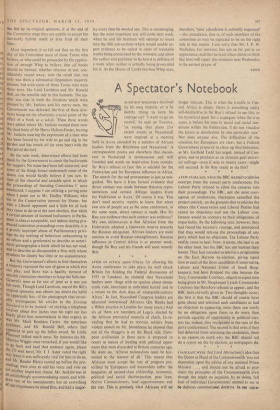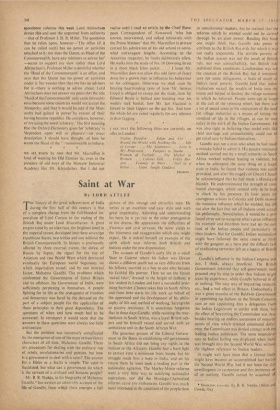I SAID LAST WEEK that Lord Altrincham's idea that the
Queen as Head of the Commonwealth 'was not dependent upon the advice of any national Prime Minister . . . and should not be afraid to pro- claim the principles of the Commonwealth even though she might on occasion, by so doing, fall foul of individual Governments' seemed to me to be dubious constitutional doctrine. In our corm- spondence columns this week Lord Altrincham denies this and uses the argument from authority —that of Professor J. D. B. Miller. The quotation that he relies upon, however—'The office (if it can be called such) has no power or activities attached to it; nor does the Queen, as Head of the Commonwealth, have any ministers to advise her' —seems to support my view rather than Lord Altrincham's. Professor Miller is doubtful whether the 'Head of the Commonwealth' is an office, and says that the Queen has no power or activities under it. No wonder then that she has no advisers for it—there is nothing to advise about. Lord Altrincham does not answer my point that the title 'Head of the Commonwealth' only came into exist- ence because some countries would not accept the Monarchy, and that it would be odd if the Mon- archy had gained in power -by reason of their having become republics. He complains, however, of my using the word 'arbitrary.' The first meaning that the Oxford Dictionary gives for 'arbitrary' is 'dependent upon will or pleasure'—an exact description, I should have thought, of how he wants the Head of the Im)rnmonwealth to behave.



















































 Previous page
Previous page